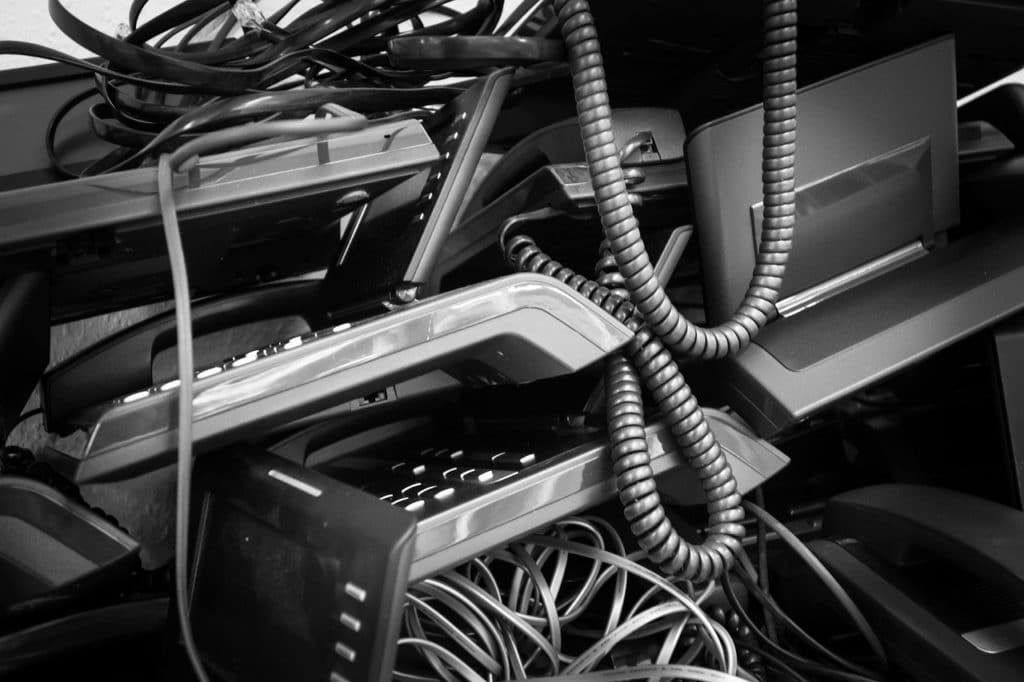When the UK went into lockdown back in March 2020 as a result of the Covid-19 pandemic, many of us found ourselves with more time on our hands as we stayed home. Research has revealed that 60% of people de-cluttered their homes in an attempt to keep busy during lockdown, and this included disposing of old electronics (source: iNews).
Even before Covid-19 hit the UK, Waste Electrical and Electronic Equipment (WEEE) was the fastest-growing waste stream in the world. A staggering 50 million tonnes of WEEE is generated every year and sadly, this is expected to double to 110 million tonnes by 2050 according to the latest UN report (source: BBC News).
As we continue to live in an evolving digital world, it is inevitable that the amount of electronics that we use and then dispose of is going to rise. Much technology has a short life span now as equipment evolves at an extraordinary rate and gadgets quickly become outdated. In 2017, Apple admitted that it had deliberately slowed down some models of the iPhone as they aged. The tech giant said it was to prolong devices, but some customers suspected that it was a ploy to encourage users to upgrade (source: BBC News).
Internet-connected gadgets are also growing at a rapid rate as we seek to make life easier with the likes of Amazon’s Echo and Google’s Home and Nest products allowing us to control elements of our homes such as the central heating and lighting. More gadgets equals more WEEE to dispose of and with the closure of recycling centres during the UK lockdown, we’ve seen a dramatic decrease in WEEE recycling with collections falling by 80% (source: Resource).
The arrival of Covid-19 forced many of us to make the transition from the office to home working. Employers needed to ensure employees had the correct technology at home to carry out their job efficiently. Additional equipment such as laptops, mobile phones and dongles may have been purchased to improve the home office. When Covid-19 restrictions are lifted and employees return to the workplace, we should expect a rise in WEEE as employers seek to manage outdated IT assets that are in the office.
All of this WEEE created both before and after Covid-19 needs to go somewhere, but it should NEVER go to landfill. Here are just some of the reasons why:
-
WEEE can cause fires
There is a growing concern that lithium ion batteries are not being processed and recycled safely. These batteries can be found in gadgets such as mobile phones, laptops, tablets and electric toothbrushes. If these batteries end up in a skip at a recycling centre or in the office waste bin without being treated correctly, they can cause lithium fires. According to the Approved Authorised Treatment Facility Forum, these fires are “an almost daily occurrence” across UK recycling plants (source: iNews).
-
Pollution and health problems
Unsurprisingly, our complex electronic gadgets can contain up to 60 different metals and chemicals which can be extremely damaging to the environment. If these gadgets end up at landfill sites, the hazardous materials can contaminate soil, pollute water sources and enter food supply chains (source: Circular). It’s not just the atmosphere and wildlife that we have to be concerned about either. WEEE can also have a serious effect on human health. For example, if lead is released into the environment, it can cause damage to human blood, kidneys and central and peripheral nervous systems.
-
Rare earth elements need to be re-used
Electronic items harbour an incredible amount of material that can be harvested and re-used if recycled properly. High value metals such as gold, silver, copper, platinum and palladium can all be extracted from old electricals, reducing the need to source these rare earth elements again which can have a damaging impact on the environment (source: Circular and BBC News).
-
It’s the law to dispose of WEEE responsibly
UK regulations require that all businesses take responsibility for any electronic products that they have in circulation amongst employees and that they make an effort to promote the reuse of electrical equipment. You are required by law to dispose of your electronic waste in a responsible manner. If you don’t, you could be faced with a hefty fine of up to £5,000.
If you’re a business owner who has returned to an office which has outdated electronic equipment and need a responsible and quick recycling solution, get in contact with the DCW team. Our bespoke electrical waste recycling services are designed to make the process safe, efficient and straightforward, ensuring that you remain compliant with UK regulations. We can collect and recycle all your WEEE waste, including:
- Laptops and desktop computers
- Mobile phones and devices
- Hard drives
- Refrigerators
- Toasters
- Most other domestic and commercial electrical / electronic equipment
By using our fully compliant services, you can make sure that all your company’s WEEE waste is disposed of safely and responsibly. As always, these services are performed in line with our Zero to Landfill policy. Call the team today on 01392 690193 or click here to email us.
